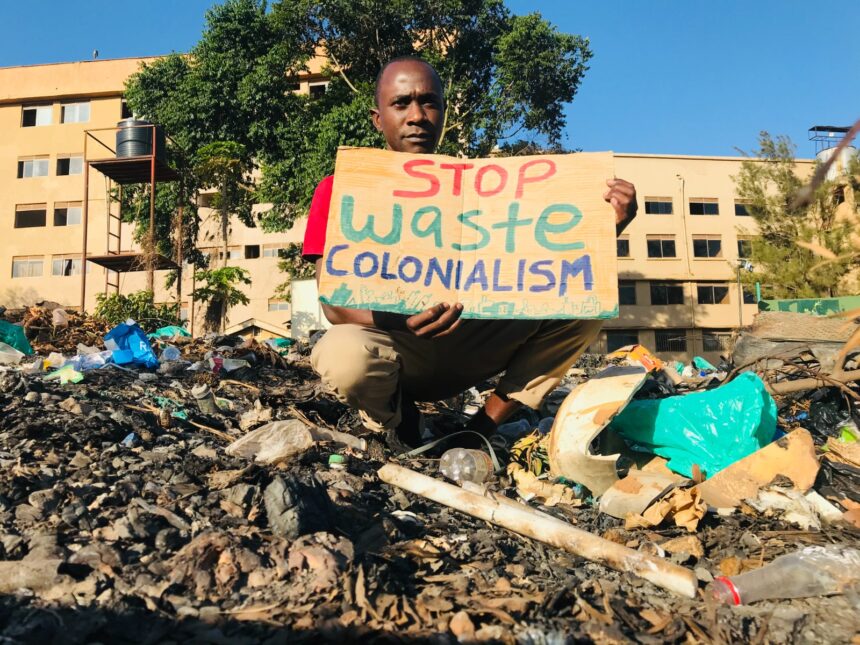The International Day of Zero Waste 2025 is a significant reminder of the urgent need to address the unchecked dumping of textile waste in Africa. Environmental advocacy groups such as the Global Alliance for Incinerator Alternatives (GAIA) Africa and the Green Africa Youth Organisation (GAYO) are calling for immediate action against the detrimental impact of fast fashion on the environment, particularly in the Global South.
The fashion industry globally generates approximately 92 million tonnes of textile waste annually, with a considerable amount ending up in African markets disguised as second-hand clothing donations. Ghana’s Kantamanto Market, for instance, receives around 15 million items of used clothing every week, mainly from the Global North. Unfortunately, a significant portion of these imported clothes is of poor quality and unsellable, leading to extensive dumping in landfills and illegal waste sites.
Jacob Johnson Attakpah, GAYO’s Project Manager for the Zero Waste Cities Program, emphasizes that Africa is facing a crisis due to the overwhelming amount of textile waste:
“Africa refuses to be a dumping ground for textile waste, especially from the West. The fashion industry must embrace circular design, responsible sourcing, and innovative recycling to progress towards true zero waste.”
The repercussions of this textile waste crisis go beyond environmental degradation. In cities like Accra, discarded clothing congests drainage systems, worsens flooding, and pollutes coastal areas. The once pristine shores of Ghana now bear witness to waves bringing in heaps of abandoned garments. The Agbogbloshie Market has transformed into a dumping ground where mountains of unsellable clothing accumulate, exacerbating pollution levels.
In addition to environmental concerns, the influx of second-hand clothing undermines Africa’s local textile industry. The constant influx of cheap, low-quality imports diminishes the demand for locally produced fabrics, leading to the closure of many artisans and manufacturers.
The trade of second-hand textiles is dominated by developed nations, with the top exporters of used clothing in 2023 including the United States, China, Germany, and the United Kingdom. The bulk of these clothes ultimately end up in African countries, creating an unmanageable waste problem. Nirere Sadrach, Founder of End Plastic Pollution (EPP) in Uganda, condemns this practice as “waste colonialism,” emphasizing the need for companies to take responsibility for the entire lifecycle of their products.
GAIA Africa and its partners are advocating for immediate policy interventions to combat the environmental and economic harm caused by fast fashion waste. Their demands include a ban on unmanageable textile waste dumping, extended producer responsibility (EPR) for fashion brands, investment in local textile industries, and consumer awareness and action to promote sustainable fashion choices.
Desmond Alugnoa, GAIA Africa’s Program Manager, asserts that “Africa cannot serve as a dumping ground for fast fashion waste. This is not charity; this is waste colonialism. We urge swift policies to halt the export of unmanageable textile waste to Africa and to hold corporations accountable.”
Efforts like the Or Foundation’s initiatives in Accra are reshaping the narrative around textile waste by transforming it into sustainable products such as laptop stands, speaker shells, and hangers. These innovative products represent the potential for a circular economy approach to waste management.
On the occasion of the International Day of Zero Waste, African nations and environmental organizations are standing up against the harmful practices of the fast fashion industry. With mounting textile waste posing threats to ecosystems, economies, and communities, the need for systemic change is more pressing than ever. The fight against “waste colonialism” is not just a local struggle but a shared global responsibility.








